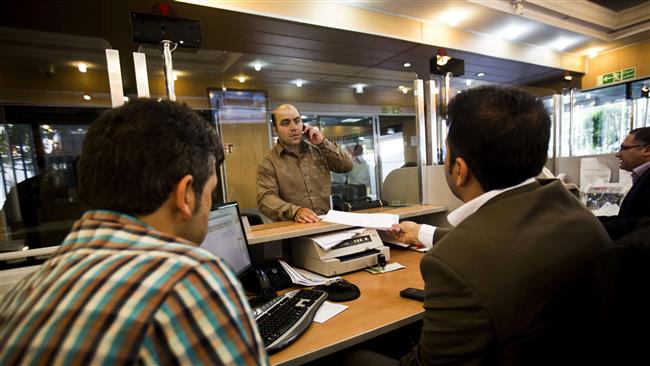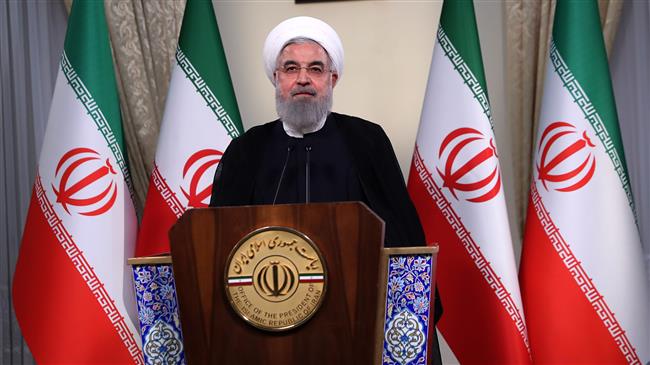Iran removes chiefs of 4 banks over ‘unusually high salaries’


The chief executives of four of Iran’s major commercial banks have been sacked from their posts for receiving “unconventionally” high salaries.
Iranian media reported on Thursday that Minister of Economic Affairs and Finance Ali Tayebnia had removed the heads of Bank Mellat, Bank Saderat, Refah Bank and Mehr.
“At the request of the president to investigate the issue of salaries, the heads of Mehr Iran, Mellat, Refah and Saderat banks have been replaced on the orders of the economy minister for receiving unconventional salaries and loans,” IRNA said.
The reports said the head of another bank was also to be fired, but the decision has been delayed for “further review.”
The top bankers are accused of receiving large bonuses, interest-free loans and, in some cases, tax evasion.
Investigations launched by President Hassan Rouhani’s government came after Leader of the Islamic Revolution Ayatollah Seyyed Ali Khamenei last Wednesday called for immediate action.
“The issue of astronomical salaries is in fact an attack on our values, but everyone should know that they are among exceptions,” Ayatollah Khamenei said in an address to Rouhani and his cabinet on June 22.
“This issue must not be delayed. It should be seriously followed up and the people must be informed of the results,” the Leader added.
Earlier this month, the government launched an investigation into public pay following reports that executives at the state insurance regulator were earning more than 50 times the base government salary.
Iranian law states that the top salary in the government should not be more than seven times that of the lowest-paid government employee.
The paycheck leaks showed some senior managers at the Central Insurance Co. were paid up to 870 million rials ($28,339 at the official exchange rate) in March.
The company said the paychecks were for the last month of the Iranian calendar year and therefore were unusually large, including arrears, loans and bonuses but its head resigned in May.
The publication of a document showed one manager at Bank Tejarat received the equivalent of about $230,000 last November. The bank said the media had misrepresented the document because it showed not only salary payments but also pension amounts and other arrears.
Then the salary of the managing director of the National Development Fund, Safdar Hosseini, was revealed to be $18,700 a month.
Rouhani has pledged to investigate and punish government employees receiving excessive salaries. He has ordered his deputy Eshaq Jahangiri to seriously pursue the issue and report back any “decisive measures” taken in this regard.
“All cases of violation and abuse should be identified as soon as possible; the wages unlawfully paid should be returned to the public funds; the offending managers should be dismissed; and a report on the decisive measures should be given to me,” Rouhani said.
The government has made weeding out corruption a top goal. In March, Iranian tycoon Babak Zanjani was sentenced to death over fraudulently pocketing $2.8 billion.


 Long live Yemen
Long live Yemen

